fcc
Latest
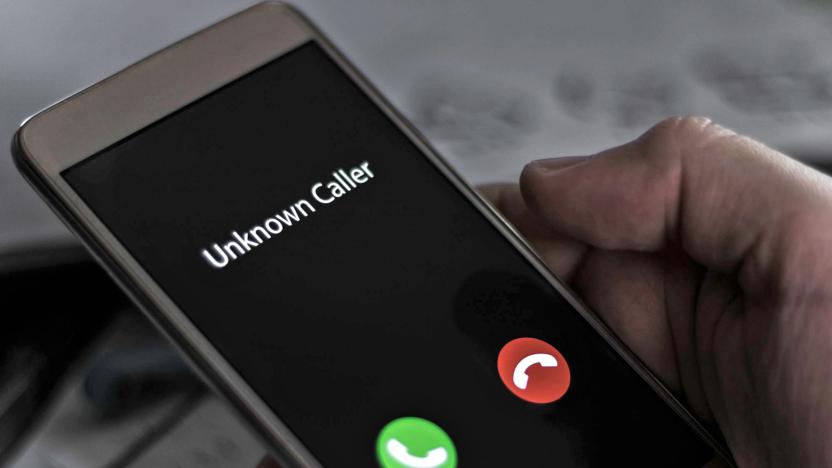
FCC will require phone carriers to authenticate calls by June 2021
The FCC announced today all carriers and phone companies must adopt the STIR/SHAKEN protocol by June 30th, 2021. The regulatory requirement is designed to combat robocalls, specifically those that try to hide their phone numbers by allowing carriers to authenticate caller IDs.

FCC outlines $200 million COVID-19 telehealth plan
Today, the FCC announced a few additional measures to help the US during the coronavirus pandemic. Chairman Ajit Pai shared plans for a $200 million COVID-19 Telehealth Program, which would equip healthcare providers with the broadband connectivity and devices they need to provide telehealth services. The FCC also eased off its ongoing crackdown on cell phone subsidy abuse, saying that it won't de-enroll participants until at least May 29th.

Saudi Arabia may be spying on its citizens via US mobile networks
Data shared by a whistleblower suggests Saudi Arabia may be using a weakness in mobile telecom networks to track its citizens in the US, The Guardian reports. The data shows that over a four-month period, Saudi Arabia's three biggest mobile phone companies sent 2.3 million requests for Provider Subscriber Information (PSI). Normally, that data is used to help foreign operators register roaming charges, but the high volume of requests could also give the Saudi telecoms enough info to track users within hundreds of meters of accuracy.

FCC gives Verizon extra mobile capacity to manage emergency demand
Earlier this week the FCC granted T-Mobile access to additional spectrum to cope with extra demand fuelled by the coronavirus outbreak -- now it's done the same for Verizon. The STA (special temporary authority) will allow the carrier to operate for 60 days in spectrum licensed to Northstar and SNR, in order to provide extra capacity to Verizon customers across the US.

FCC gives T-Mobile extra spectrum to cope with demand during coronavirus
T-Mobile pledged to keep people online during the coronavirus outbreak, and it's getting some help from the government to make that happen. The FCC is granting T-Mobile access to more 600MHz spectrum for the next 60 days to help it cope with customer demand for internet access while the pandemic continues. The carrier had asked for the additional airwaves for remote work, education and health care, not to mention the basics of staying in touch while isolated.
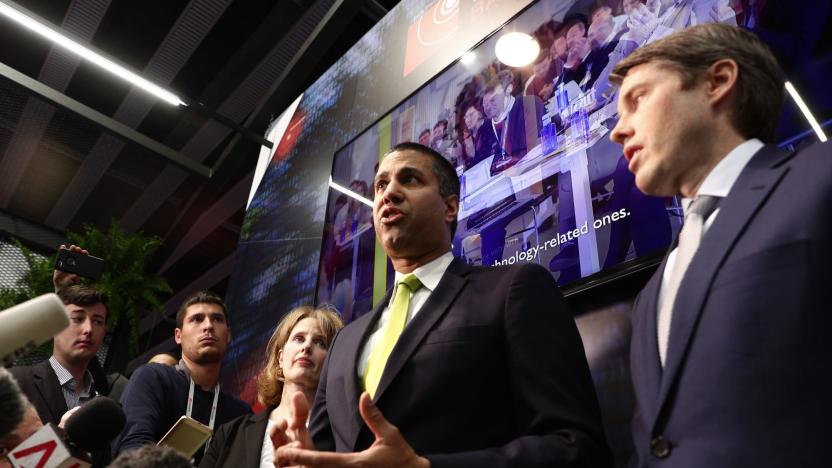
US wireless carriers pledge to suspend cancellations amid outbreak
One day after Commissioner Jessica Rosenworcel called on the FCC to take aggressive action in response to the ongoing coronavirus outbreak, the federal agency has announced the Keep Americans Connected Pledge. For the next 60 days, the agreement calls on telecom companies to maintain service and waive late fees for any residential and small business customers who can't pay their bills due to the pandemic. It also calls on those companies to open their WiFi hotspots.

AT&T and Comcast improve internet access in response to COVID-19
With so many people in the US working and learning from home, as offices and schools close in response to the coronavirus pandemic, internet service providers (ISPs) are beginning to react. Comcast is increasing internet speeds for low-income users, and AT&T told Motherboard that it is suspending all broadband usage caps until further notice.
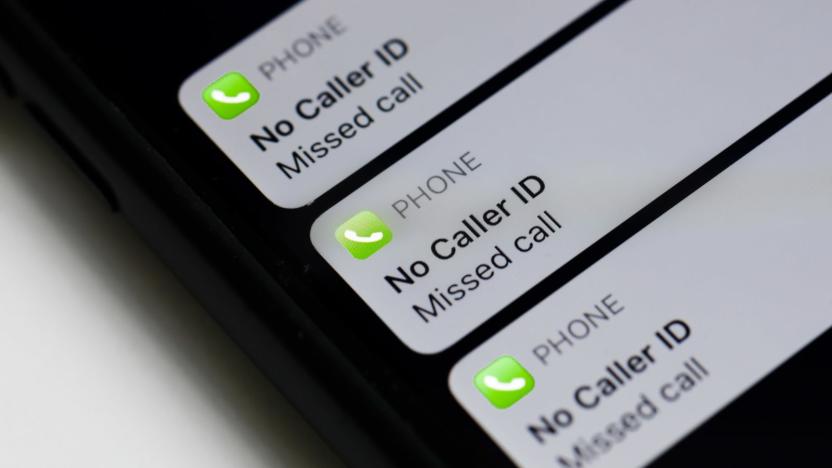
FCC could require phone companies to authenticate calls
Today, FCC Chairman Ajit Pai proposed new rules that would require phone companies to adopt the STIR/SHAKEN protocol, an increasingly popular method for caller ID authentication. The rules are meant to combat robocalls, specifically those that spoof phone numbers, and the FCC is expected to vote on them later this month.
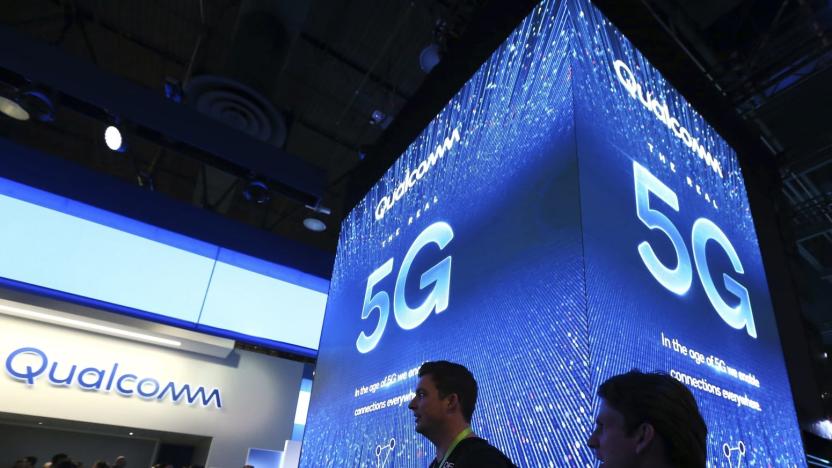
FCC votes to auction C-band satellite spectrum for 5G use
FCC chairman Ajit Pai has been pressing for an auction of "mid-band" wireless spectrum that could be useful for expanding the reach of 5G, and on Friday the commission voted to approve rules for just such a redistribution. The rules cover "C-Band" spectrum that satellite companies like Intelsat, SES SA and Telesat are currently using, and include payment incentives for those companies to speed plans to shift operations away from those frequencies by dates in 2021 and 2023. Otherwise, the spectrum will need to be freed up no later than December 5th, 2025. Those payments could add up to $9.7 billion, and dissenting FCC commissioners argued that there wasn't enough consideration on how much they should be or how funds from the auction should be distributed, and that the FCC was misusing its powers under the law. Jessica Rosenworcel said in a statement (PDF) that, "We could start a fund a new initiative to help with rural broadband. We could fund the nation's transition to next-generation 911, which is sorely needed and would benefit public safety in every state. Or we could use some of the revenues to seed a Homework Gap Trust Fund to help our nation's students stuck in the digital divide. It could support WiFi hotspots for loan in every school library—and virtually eliminate the Homework Gap overnight."
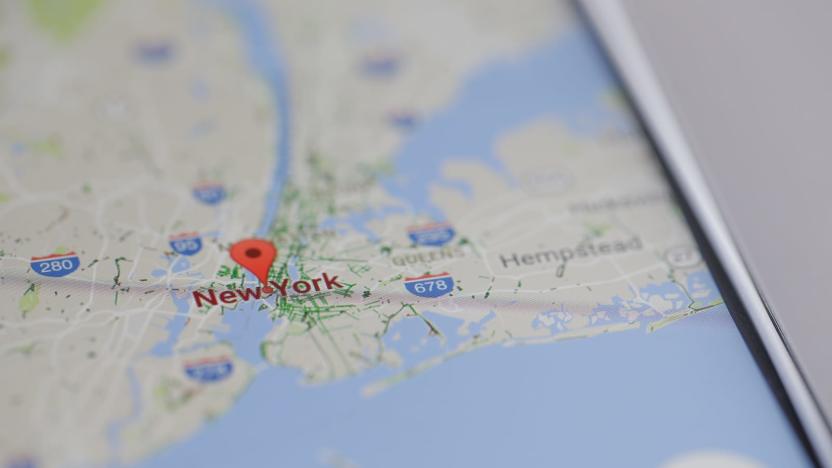
FCC proposes token fines for carriers that sold phone location data
The rumors were true: the FCC wants to fine major carriers for their approach to selling phone location data. The regulator has proposed a total of $208 million in fines against the top four US carriers for reportedly selling access to location info without "reasonable measures" to prevent unauthorized access. T-Mobile would face the (relatively) stiffest penalty with over $91 million, while AT&T could be fined over $57 million. Verizon (Engadget's parent company) could be hit with a roughly $48 million fine, while Sprint would 'only' have to contend with a $12 million fine.
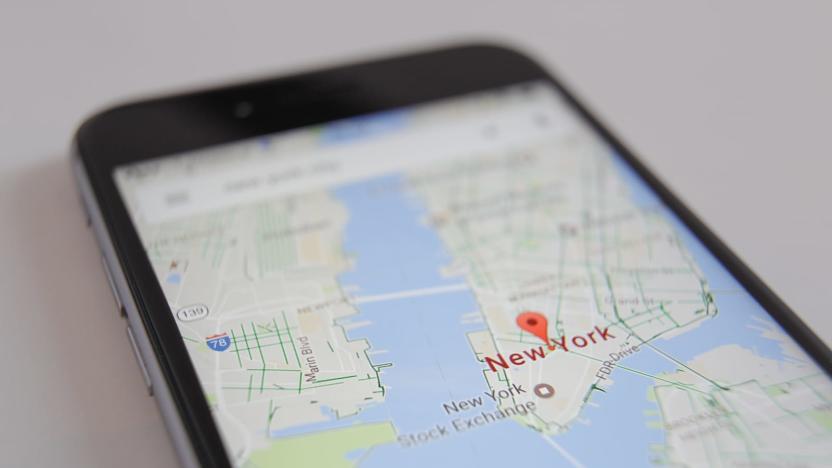
FCC may fine carriers for failing to protect phone location data
The FCC has warned phone carriers that they broke the law by selling location data, and it might soon make those companies pay the price. Wall Street Journal sources say the FCC hopes to levy "hundreds of millions of dollars" against AT&T, Sprint, T-Mobile and Verizon (Engadget's parent company) after determining that they failed to protect real-time location info. The regulator reportedly sent notices of liability that, while not final, indicate that a penalty is on the way.

FCC begins collecting data to help carriers replace Huawei and ZTE hardware
In late 2019, the FCC officially banned companies receiving Universal Service Fund subsidies to use that money to buy equipment from companies deemed a "national security threat." In other words, companies like Huawei and ZTE. The agency proposed a reimbursement program to help them, especially rural carriers, with the costs that come with changing existing equipment. Now, the FCC has revealed that it has started collecting information from carriers about their use of Huawei and ZTE equipment.
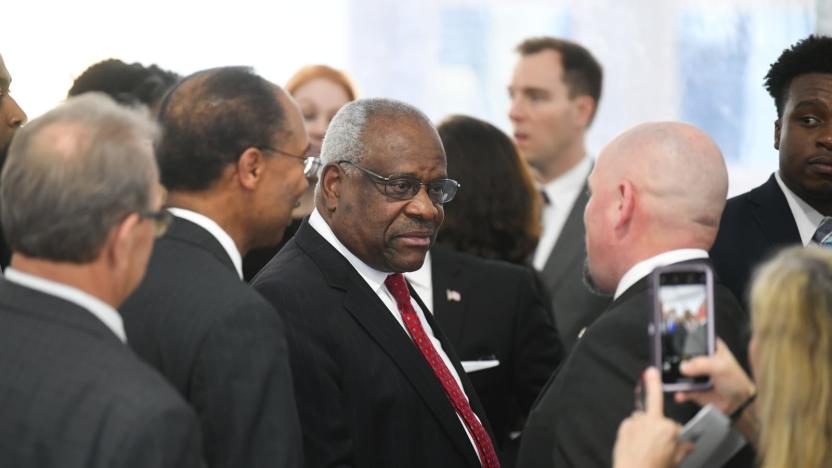
Clarence Thomas laments ruling that let FCC kill net neutrality
Supreme Court Justice Clarence Thomas doesn't have many fans among open internet advocates. His decision in the 2005 Brand X broadband case let the FCC classify internet service any way it liked as long as there was a justification, giving Ajit Pai's FCC the tools it needed to kill net neutrality. However, he appears to have had a change of heart. In the lone dissent on a case addressing the IRS' interpretation of American law, Thomas said he felt Brand X was "inconsistent" with the Constitution, the Administrative Procedure Act and other approaches to interpreting laws. He added that he would "revisit" his decision if he could.

FCC forced to ask for public feedback on net neutrality repeal
Earlier this week, the FCC successfully defeated Mozilla's attempt to undo the commission's repeal of net neutrality. But, while siding with the body, judges have asked the FCC to determine if repealing the law to prevent a multi-speed internet has had any negative consequences. That includes checking if net neutrality repeal has harmed public safety, reduced spending in infrastructure or hampered the Lifeline program.

US appeals court will not rule on repealing net neutrality laws
A US appeals court said it will not reconsider an October ruling that upheld the repeal of net neutrality laws, Reuters reports. Tech and advocacy groups, along with 15 states, had requested that the ruling be reconsidered. The appeals court's decision marks another win for the Federal Communications Commission (FCC) and allows the repeal of net neutrality laws to stand.
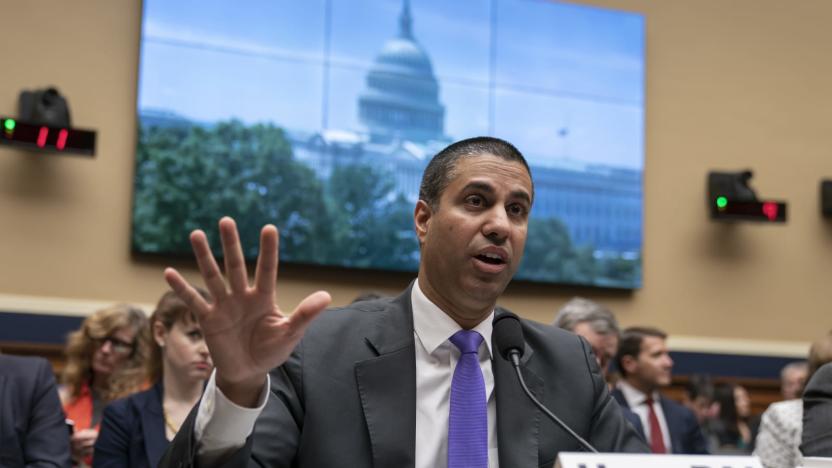
FCC asks telecom companies to help trace international robocalls
Last year, the Federal Communications Commission (FCC) banned robocalls from international numbers. Now, it's calling on phone companies to help trace international robocalls back to their "fraudster" sources. Today, the FCC sent letters to seven gateway service providers asking them to help track down robocall sources, prevent apparently illegal traffic originating outside the US and provide more info on how they may be facilitating illegal calls.

SpaceX asks permission to take Starship on a high-altitude test flight
One of the next major steps in SpaceX's plans for true spaceflight will be a 12-mile-high test flight. Sometime between March and September, the company plans to launch its Starship suborbital test vehicle from Boca Chica, Texas. The Starship will travel to an altitude of 12.4 miles, or 20 kilometers. SpaceX will then attempt to land and recover the vehicle.

After Math: That's something at least
This week has been a real kick in the teeth. The UK actually stepped off the Brexit precipice while the US Congress barely went through the motions of Trump's impeachment trial. Worst of all Elon Musk released a truly cringeworthy EDM track because sure, it's not like the week was going to be getting any worse at that point. Still there were a few high points, read on for the week's headlines that helped get us to Sunday.
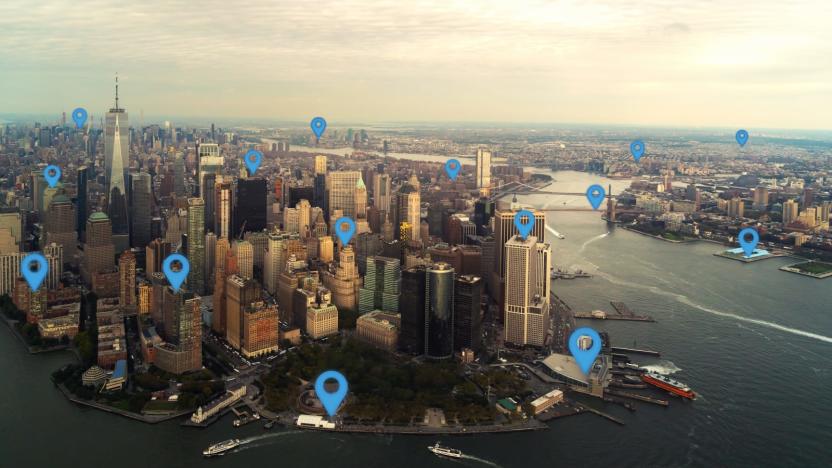
FCC: Wireless carriers violated federal law by selling location data
The FCC has finished investigating carriers' unauthorized disclosure and sale of subscribers' real-time location data, Chairman Ajit Pai has shared with (PDF) lawmakers in the House of Representatives. In his letters, he told Energy and Commerce Committee Chairman Frank Pallone, Jr. and others that the agency has come to a conclusion after an extensive probe: one or more carriers "apparently violated federal law." Pai has also promised the lawmakers that the agency is going to take action against the offending carriers to ensure that they comply with laws that protect consumers' sensitive information.

FCC wants to fine one man almost $13 million for making 6,000 robocalls
When the Federal Communications Commission (FCC) typically fines robocallers, they're usually operations that involve shady companies. Not so with the agency's latest proposed action, which targets a single individual. On Thursday, the FCC said it wants to fine one man $12,910,000 for carrying out massive robocalling campaigns in six states. In all, the person made more than 6,000 calls in California, Flordia, Georgia, Idaho, Iowa and Virginia using an online tool that allowed them to mask their calls as coming from a local number.







